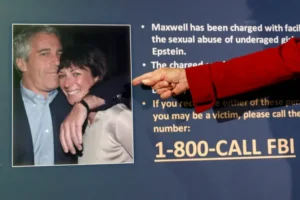Understanding the Signal Chat Leak Controversy
In a show of unwavering support, GOP senators have strongly backed Defense Secretary Pete Hegseth following the Signal chat leak controversy, reinforcing their trust in his leadership despite bipartisan scrutiny. The leak, which inadvertently included journalist Jeffrey Goldberg in a private Signal group discussing sensitive military operations, has ignited national security concerns and calls for an extensive investigation.
What Happened?
The Signal chat leak originated from an internal group conversation that mistakenly allowed a journalist access to sensitive military discussions. This accidental breach exposed classified information, raising concerns about security flaws within government communication channels.
| Key Details of the Leak | Impact |
|---|---|
| Signal group chat breach | National security risks |
| Involvement of journalist Jeffrey Goldberg | Potential intelligence exposure |
| Calls for Pentagon investigation | Increased scrutiny of defense leadership |
How the Leak Affects National Security
The controversy stems from a critical lapse in security that exposed internal military discussions to an unintended audience. The revelation has raised serious questions about how classified information is handled within government circles. While some lawmakers demand accountability, key Republican figures argue that the issue is being politicized to undermine Hegseth’s credibility.
Senator Roger Wicker (R-MS), a senior member of the Senate Armed Services Committee, stated, “While this incident is concerning, it does not overshadow Secretary Hegseth’s dedication to strengthening our national defense. We must focus on fixing security protocols rather than engaging in political theatrics.”
Implications of the Leak:
- Increased risk of classified data exposure
- Potential diplomatic repercussions
- Heightened public concerns over government cybersecurity measures
Why GOP Senators Are Defending Hegseth
Despite growing concerns, several GOP senators have rallied behind Hegseth, emphasizing their confidence in his leadership. Many argue that the leak was an internal security failure rather than a reflection of his capability. They believe that focusing on security reforms is more important than targeting individuals.
| GOP Arguments Supporting Hegseth | Counterarguments by Critics |
| The breach was a system failure | Leadership accountability is essential |
| Hegseth is committed to security | A leader must ensure communication safety |
| Politicization of the issue weakens defense | National security should be above politics |
Bipartisan Calls for Investigation
Despite GOP backing, bipartisan lawmakers are pressing for a full-scale investigation. Senator Jack Reed (D-RI) and other Democratic leaders have urged the Pentagon to conduct a thorough review of the breach. They emphasize the need for enhanced cybersecurity measures to prevent similar incidents from occurring in the future.
According to a recent YouGov poll, 67% of Americans consider the leak to be a “very serious” issue, underscoring growing public concerns about potential vulnerabilities in government communications.
How the Trump Administration Is Responding
Amid the controversy, former President Donald Trump has withdrawn Rep. Elise Stefanik’s nomination for U.S. ambassador to the United Nations, citing the need to maintain every Republican seat in Congress. While the move is unrelated to the Signal chat leak, it highlights the administration’s strategic approach amid increasing political pressures.
Internally, some of Trump’s allies have questioned Hegseth’s handling of the crisis, with reports suggesting concerns about his crisis management capabilities. However, top White House officials have dismissed these claims, reinforcing their confidence in his ability to lead.
The Future of Government Communication Security
As investigations proceed, the Pentagon is expected to introduce stricter security protocols for digital communications. Experts argue that multi-layered encryption, two-factor authentication, and AI-powered threat detection systems could significantly reduce the risk of unauthorized leaks in the future.
Cybersecurity analyst Michael Townsend emphasized, “This incident should serve as a wake-up call for government agencies. Enhancing digital security is not an option—it’s a necessity.”
Conclusion: A Turning Point for National Security
The Signal chat leak controversy has sparked a crucial conversation about national security, political loyalty, and the future of government communication systems. With bipartisan pressure mounting and public trust at stake, the outcome of this investigation could set a new standard for handling classified information in the digital age.
As security measures evolve, the government must ensure transparency and effectiveness in its cybersecurity policies. This event underscores the need for proactive security improvements, leadership accountability, and bipartisan cooperation to protect national interests.





